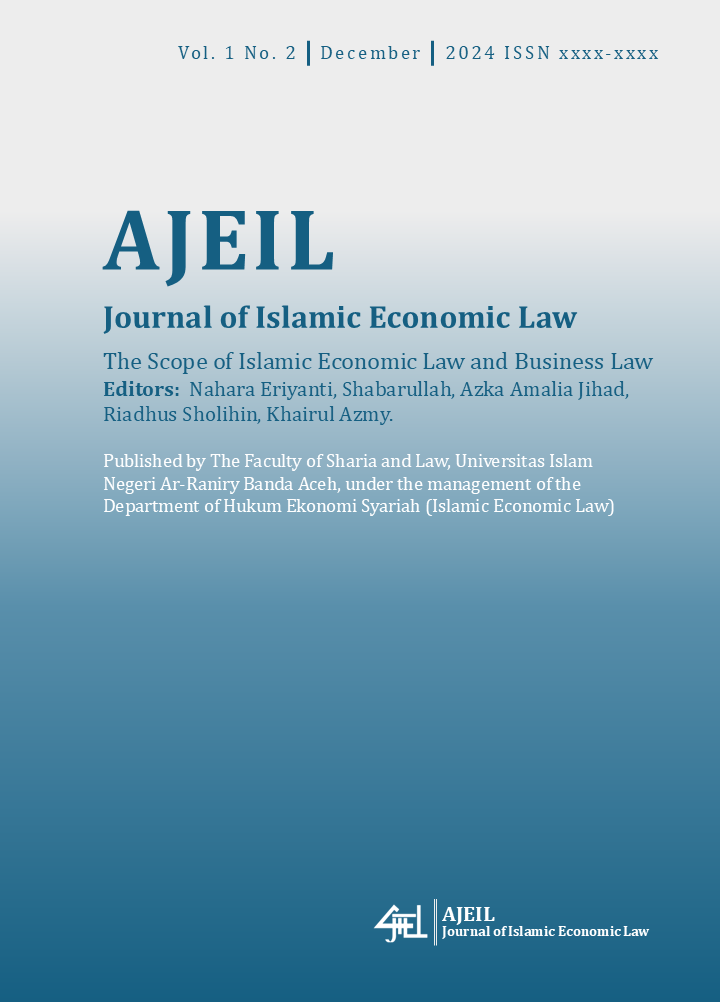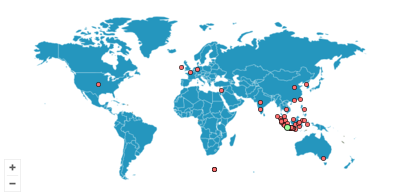The Practice of Cooking Oil’s Arisan (lottery club) within the IKPP Group of Central Aceh community
a study of the Qardh theory
Keywords:
Arisan Practices, Cooking Oil, Qardh Agreements, Sharia Economic LawAbstract
The practice of arisan is a means for people to save because there is a return of goods or money worth the amount that has been deposited. As in the cooking oil arisan conducted by the IKPP community in Central Aceh which can be used for the benefit of receptions or celebrations that will be held by these members, if there are members who do not hold receptions then the arisan can be cashed. This arisan is carried out regularly every month by determining the recipient of the arisan every 2 months. The problem in this research is how is the practice of cooking oil arisan for receptions among the IKPP Aceh Tengah community? This includes how the agreement between each member and the chairman, the arisan pattern, and the responsibilities of members in the cooking oil arisan among the IKPP community. Another problem is how is the perspective of the qardh contract on the practice of cooking oil arisan conducted by the IKPP community in Central Aceh? The method used in this research is qualitative with an empirical sociological approach through primary data obtained from field research and secondary data from library research. The results of this study can be concluded that the practice of cooking oil arisan for receptions among the IKPP Central Aceh community is carried out with an agreement made verbally, then agreed upon by each member and the chairman so that from this it shows that the agreement runs in accordance with the provisions that have been agreed upon together. Furthermore, from the perspective of the qardh contract, this arisan practice has fulfilled the pillars and conditions because each member gets the same arisan object, namely 2 litres of sunco cooking oil. If the member wants to receive money, the money is also worth the price of cooking oil at the time of receiving the arisan.
References
Abdullah Varatisha Anjani. (2016) "Arisan as a Lifestyle (A Critique of Urban Consumptive Society)", Journal of Communication. Vol.11 No. 1
Abu Azam Al H adi, (2016) Contemporary Muamalah Jurisprudence. Depok: PT RajaGrafindo Persada
Ahmad Gozali, Cashflow For Woman: Making Women the Top Family Finance Managers, (Bandung: PT Mizan Publika, 2005), pp. 65-66.
Erwandi Tarmizi, MA, (2011). Contemporary Muamalat Haram Treasure. Bogor: PT Berkait Mulia Insani, 2011
Ghufron A. Mas'adi. (2002), Fiqh Muamalah Konstektual, Ed.1, Jakarta: Raja Grafindo Persada
Idris Muhammad, et al. (2022). "Model of Arisan Sembako: Fiqh and Economic Review (Case Study in Seo Besar Village, Sarolangon Jambi)", IJEIEB: Indonesian Journal of Economics and Business. Vol.5, No.2.
Muchtar Asmaji. (2015), Dialogue Across Mazhab Fiqh Ibadah and Muamalah, Jakarta: Amzah
Muhammad Hanbal Shafwan. (2013), Sahih-Dha'if Bulughul Maram, Sanggarahan Grogol Sukoharjo: Al-Qowam
Muslich Ahmad Wardi. (2013), Fiqh Muamalat, Jakarta: AMZAH
Poerwadarminta W.J.S. (1976). Big Indonesian Dictionary, Jakarta: PN Balai Pustaka
Rozalinda. (2016). Sharia Economic Jurisprudence Principles and Implementation in the Islamic Financial Sector, Jakarta: PT Rajagrafindo Persada
Sayyid Sabiq (2008), Fiqh Sunnah, Jakarta: Pena Pundi Aksara
Wahbah Az-Zuhaili, (1989). Al-Fiqh Al-Islam Wa Adillatuhu, Juz, 4, Damascus: Darul Fikri
Wahbah Az-Zuhaili, (2011) Fiqh Islam 5, Jakarta: Gema Insani
Downloads
Published
Issue
Section
License
Copyright (c) 2014 AJIEL - Ar-Raniry Journal of Islamic Economic Law

This work is licensed under a Creative Commons Attribution-ShareAlike 4.0 International License.












